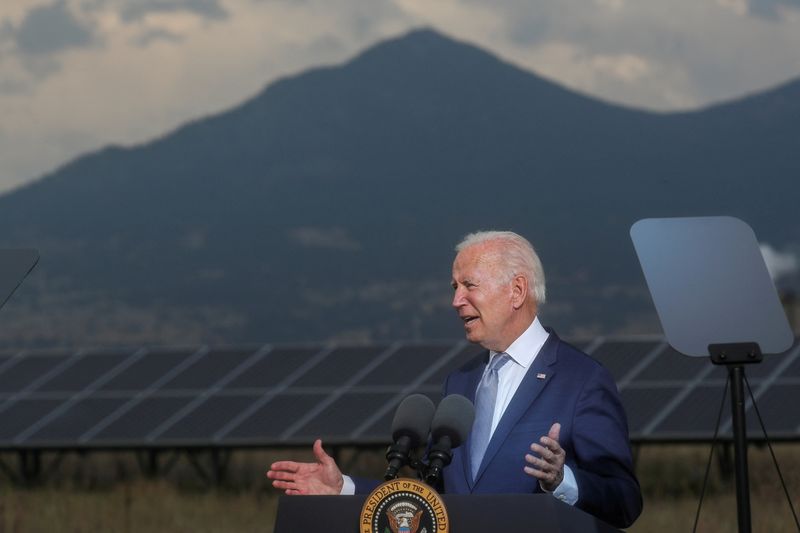By Isla Binnie
NEW YORK (Reuters) - Developers of renewable energy projects selling unused U.S. tax credits to other companies now account for a market worth between $7 billion and $9 billion, buoyed by legislation in 2022 that made these trades possible, a new study shows.
President Joe Biden's climate law aimed to stoke trillions of dollars of investment to wean the economy off planet-warming fossil fuels, partly through tax breaks for builders of projects like wind farms and solar plants.
The government made some of these new credits tradable, in the hope of bringing fresh money to projects which have long relied on a group of banks that are big and expert enough to invest directly and take the associated tax breaks.
In the first six months since tax authorities set guidance for the trades in June of last year, deals were struck to transfer credits worth between $7 billion and $9 billion, online platform Crux calculated.
That represents more than one third of the roughly $20 billion traditionally raised each year through tax equity for such projects in the United States. In total, $64 billion was invested nationally in clean energy and transportation in the three months to September, the Rhodium Group think tank says.
Crux, which lets sellers post details of their projects and buyers browse and make bids, surveyed developers selling the credits, corporate buyers and intermediaries like banks and brokers in late 2023, and received 150 responses.
They counted deals worth $3.5 billion, and separately parsed other accessible information to reach the $7-9 billion estimate for the 2023 tax year.
"This market has scaled faster than anyone anticipated," said Crux CEO and co-founder Alfred Johnson, a former Treasury Department staffer.

Buyers paid an average 92-94 cents on the dollar for credits. Crux and other companies like it say they charge fees ranging from less than 1% to 3% of the value of the credits, which can only be sold once.
"We saw behavior like a bidding war on the platform." Johnson said. "In 2024 we expect many more net new buyers."